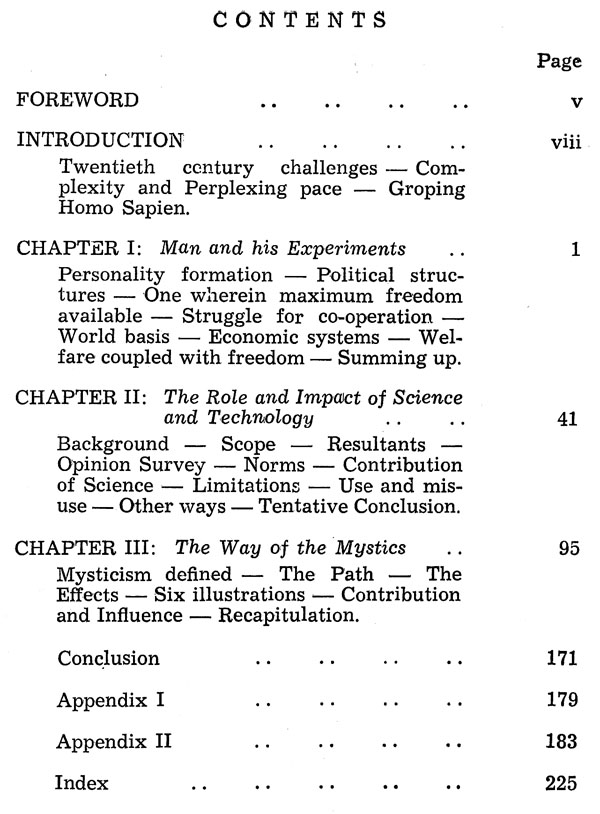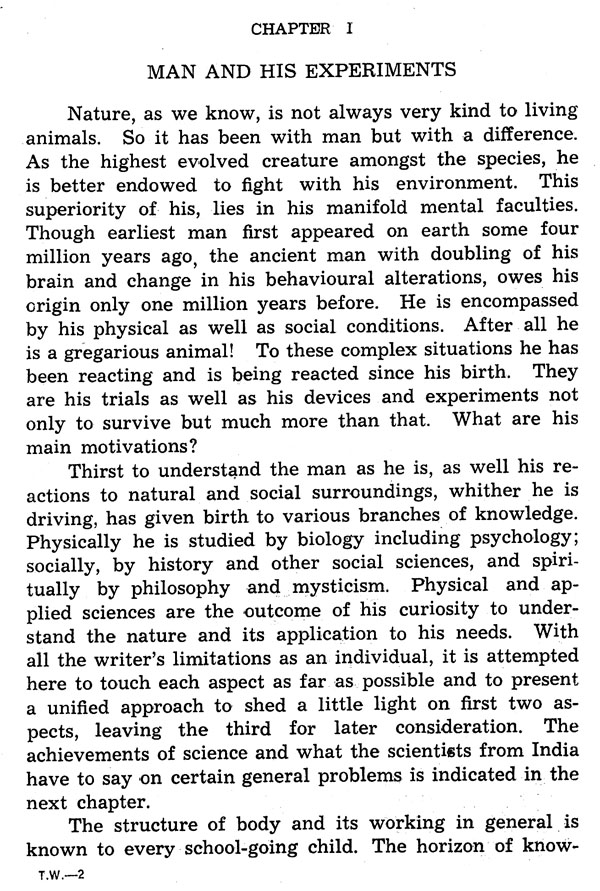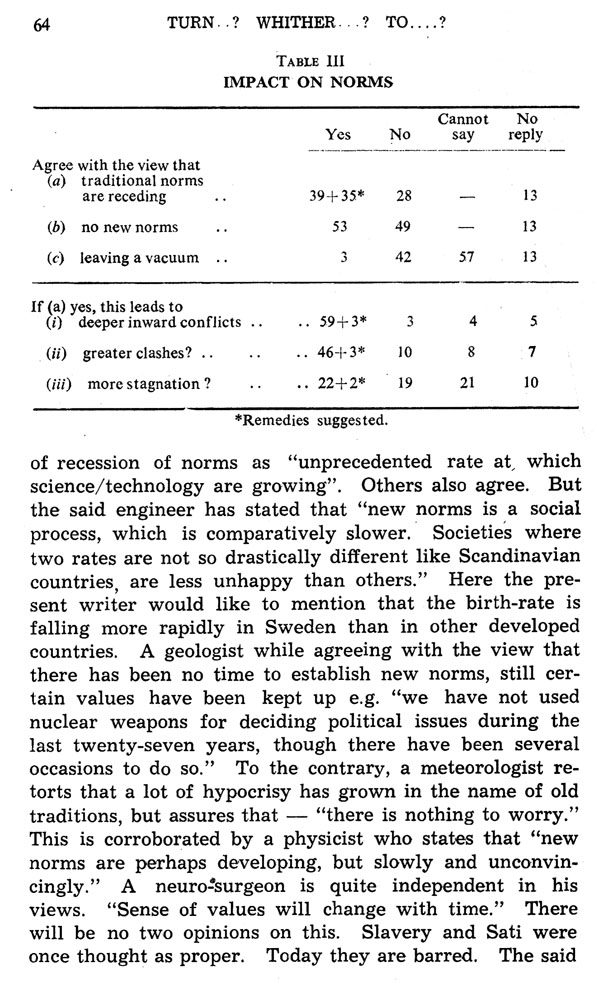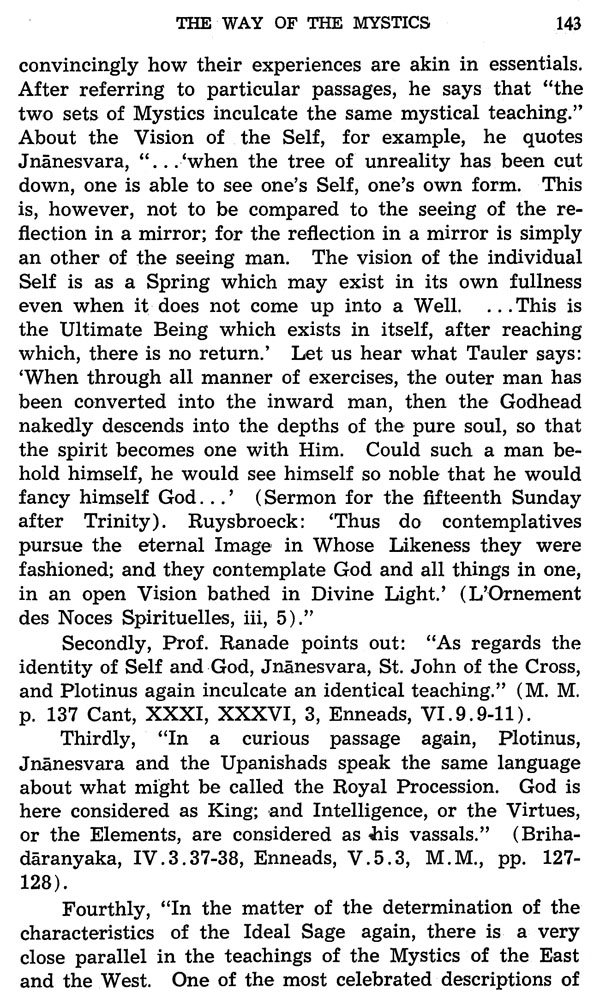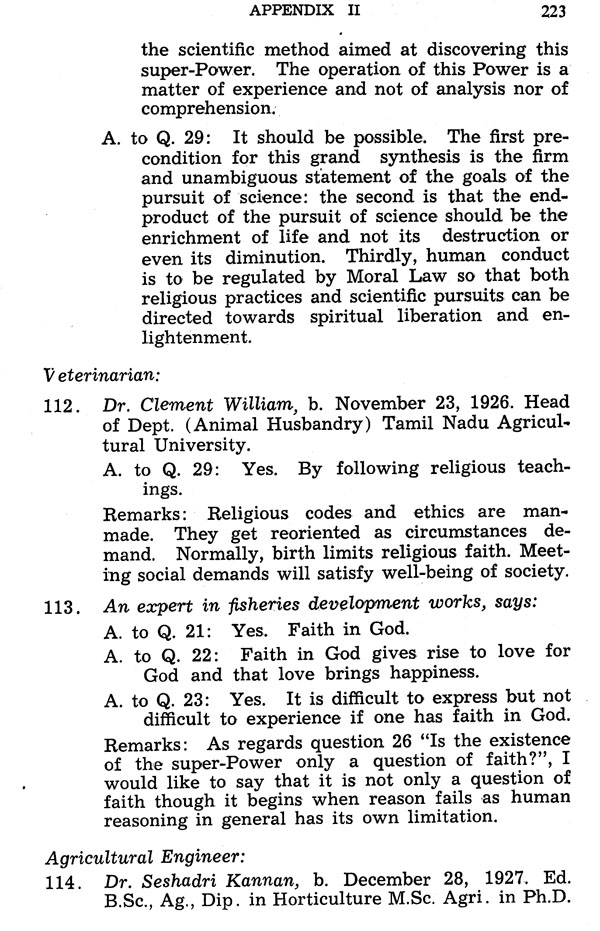
Turn..? Whither...? To....? (An Old and Rare Book)
Book Specification
| Item Code: | NAX456 |
| Author: | Chandrakala A. Hate |
| Publisher: | Bharatiya Vidya Bhavan, Mumbai |
| Language: | English |
| Edition: | 1978 |
| Pages: | 227 |
| Cover: | HARDCOVER |
| Other Details | 9.00 X 6.00 inch |
| Weight | 400 gm |
Book Description
After retirement as the Head of the Department of Sociology, S.N.D. T. Women's University, Dr. Hate was an Emeritus Professor under the U.G.C.
Dr. Hate wields a facile pen and has several books to her credit on planning, economics and sociology. The present book, as Dr. R. Ramanna observes in his Foreword, "is developed in the nature of a scientific and philosophic inquiry and is extra-ordinary in its content and very original in its treatment. It is a testimony not only to her vast erudition and the loftiness of her ideals and values, but also to her deep concern for the human condition and the future of mankind."
Her present book, "Turn ..? Whither . ? To 971 which is at the same time a historical study, an anthology of the best of ancient and modern thought, and an analysis of an opinion survey - is developed in the nature of a scientific and philosophic inquiry, and is extra-ordinary in its content and very original in its treatment. It is a testimony not only to her vast erudition and the loftiness of her ideals and values, but also to her deep concern for the human condition and the future of mankind.
I have read with special interest the section on 'The Role and Impact of Science and Technology', which forms the core section of the book. This section is based on an opinion survey that Shrimati Hate had conducted across a good cross section of leading scientists in India, in order to ascertain their views on questions of a metaphysical, socio-logical and spiritual nature. "Can sciences, both physical and social, lead to Man's ultimate happiness and well-being? Or does the individual require some broader base for obtaining fulfillment in life-synthesising the pursuit of science with spirituality in the higher sense?" The imaginatively formulated questionnaire touched upon the possible limitations of the scientific method, and the existence of a super power in the universe.
A developing nation, India for instance, may serve as an illustration. This country won its independence by peaceful means. This was a unique event in itself. It is striving hard to preserve its sovereignty. Poverty and ignorance are fought by democratic procedure and economic planning. There is a decided rise in the standard of living but pre-independence expectations of full employment, provision of necessities to all, are still dreams. Disillusion, unrest, violence and above all the impact of world currents, has ensued cynicism. Youth is confused. The past has no meaning; the future holds no hope. The ideologies of the West and the 'isms' of the East do not inspire them. Where to turn?
This is not a peculiarity of the Indian situation. The problem posed has world-wide implications. Increase in juvenile delinquency, increase in addiction to drugs, in-crease in the number of murders and suicides are the symptoms. It is a challenge to every society. Where to seek the solution?
A comprehensive analysis, the writer felt, is required like laboratory tests for correct diagnosis. Man as an architect, has faced various challenges. He has built up different types of political and economic structures by trial and error.
Book's Contents and Sample Pages
